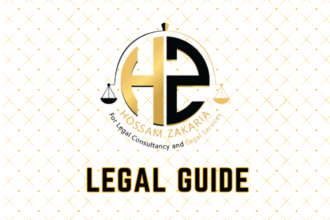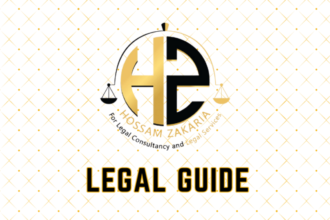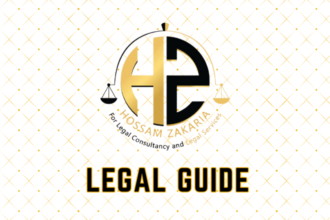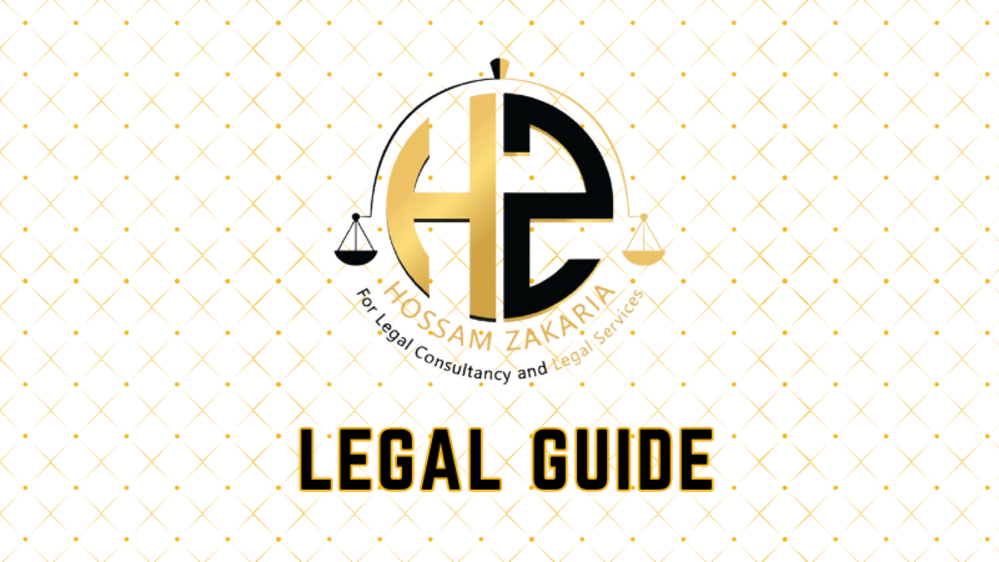Introduction
Arbitration has become an increasingly pivotal mechanism for dispute resolution in the United Arab Emirates (UAE), offering an efficient, enforceable, and often private alternative to court litigation. As of 2025, UAE arbitration procedure and arbitrator appointment rules have undergone notable refinement, reflecting the nation’s continued commitment to align its legal framework with global best practices while supporting its vision as a leading hub for commercial dispute resolution. This comprehensive article demystifies the UAE’s current arbitration procedures, clarifies the updated approach to arbitrator appointments, highlights compliance imperatives, and guides organizations and practitioners through practical scenarios under the Federal Law No. 6 of 2018 on Arbitration, as amended through recent government directions and Cabinet Resolutions. Whether you are a business leader, in-house counsel, HR manager, or legal practitioner, understanding these changes is essential for risk management, strategic planning, and contract governance in the UAE context.
Table of Contents
- Overview of UAE Arbitration Law 2025 Updates
- Core Provisions: Arbitration Procedure in the UAE
- Appointment of Arbitrators under UAE Law
- Comparing Previous and Current Legal Frameworks
- Practical Consultancy Insights and Compliance
- Case Studies and Hypothetical Scenarios
- Risks of Non-Compliance and Compliance Strategies
- Forward-Looking Perspective and Best Practices
- Conclusion
Overview of UAE Arbitration Law 2025 Updates
Foundation: Federal Law No. 6 of 2018 and Key Amendments
The primary legal framework for arbitration in the UAE is Federal Law No. 6 of 2018 on Arbitration (the “UAE Arbitration Law”), designed to modernize the regime and align with international standards such as the UNCITRAL Model Law. Since its enactment, the law has been periodically updated through ministerial decrees and Cabinet Resolutions to enhance user confidence, reliability, and enforceability within domestic and international commercial disputes. As of 2025, practitioners must be acutely aware of important adjustments, including those impacting the appointment and challenge of arbitrators, the scope of arbitrability, and procedural streamlining.
Significance for Stakeholders
For UAE-based and international enterprises, compliance with the updated arbitration procedures is not simply a formality—it is a key facet of transactional risk mitigation, dispute resolution predictability, and enforceability of awards. The importance extends to the appointment of arbitrators, which carries implications for neutrality, expertise, and procedural fairness. Businesses that structure contracts for arbitration under UAE law stand to benefit from strategic clarity and protection against costly jurisdictional pitfalls.
Core Provisions: Arbitration Procedure in the UAE
1. Initiating Arbitration: Arbitration Agreements and Notices
Under Article 7 of the UAE Arbitration Law, an arbitration agreement must be in writing and can be embedded in contractual arrangements or concluded as a separate agreement. The law reinforces the enforceability of such clauses, provided the parties’ consent is evident and the subject matter is arbitrable under UAE law.
Initiating arbitration requires the serving of a notice of arbitration, which must specify the dispute, parties’ details, and requested relief. Timeliness and accuracy in this procedural step are critical, as procedural errors may impede or delay the proceedings.
2. Seat and Language of Arbitration
The ‘seat’ (legal place) of arbitration, as outlined in Article 20, can be designated by the parties or determined by the tribunal, significantly influencing both procedural rules and the court’s jurisdiction over the process. Arabic is the default language unless the parties agree otherwise, ensuring accessibility for UAE participants while allowing flexibility for cross-border disputes.
3. Conduct of Proceedings
The Arbitration Law mandates that proceedings be conducted fairly and with due regard to the parties’ right to present their cases (Article 26). Arbitrators may determine procedure, including timelines for submission, witness presentation, and the extent of oral hearings, unless the parties agree otherwise. Notably, 2025 updates emphasize the use of modern technologies, such as remote hearings and secure digital submissions, in alignment with Cabinet Resolution No. 57 of 2020 and subsequent guidance from the Ministry of Justice.
4. Interim Measures and Court Assistance
Arbitral tribunals are empowered to issue interim measures—such as asset freezes or evidence preservation orders—either on application or sua sponte (Article 21). UAE courts may assist in enforcing these measures, supporting the practical effectiveness of arbitration. The revised procedures clarify the application process and the scope of judicial support, especially in urgent or cross-border cases.
5. Arbitral Awards: Issuance, Correction, and Enforcement
According to Articles 42–56, arbitral awards in the UAE must meet formal requirements, including concrete findings, reasoning, and signatures of arbitrators. Awards must be rendered within the timeframe set by the parties or, in absence of agreement, within six months unless extended. The Law specifically provides grounds for correction, interpretation, and supplementation of awards, as well as recognition and enforcement procedures through the UAE courts. This is crucial for ensuring that awards are not only final but also practically enforceable.
Appointment of Arbitrators under UAE Law
Statutory Flexibility and Appointment Procedures
Article 10 and related provisions set forth broad flexibility for parties to determine the number and appointment method of arbitrators. In absence of agreement, the default is a panel of three arbitrators (Article 11). Importantly, any arbitrator must be legally competent, of full capacity, and independent—criteria recently reinforced by Ministerial Guidance No. 2021/8 and subsequent notices.
Step-by-Step Arbitrator Appointment Process
- Party-Nominated Arbitrators: Each party appoints one arbitrator; the two nominees select the chair. Where a party fails to nominate, application may be made to the designated authority (such as the DIAC, ADCCAC, or UAE courts).
- Institutional or Court Appointment: If parties cannot agree, or if the chosen mechanism fails, the competent court or arbitral institution intervenes, based on Article 11(3). Transparency, neutrality, and technical competence are required criteria.
- Declaration of Independence and Impartiality: All arbitrators must disclose circumstances that may affect their impartiality or independence, aligning with best practices per Article 13 and global standards.
Recent Regulatory Enhancements
Recent years have seen the introduction of more rigorous eligibility checks and conflict-of-interest disclosure requirements. These are informed by both domestic regulatory guidance and international frameworks (e.g., IBA Guidelines), emphasizing the UAE’s commitment to high standards of fairness and transparency in arbitrator selection for both ad hoc and institutional arbitrations.
Comparing Previous and Current Legal Frameworks
To better clarify the evolution and practical implications, the following table summarizes key differences between pre-2018 and 2025 arbitration law in the UAE:
| Aspect | Pre-2018 Law | Federal Law No. 6 of 2018 & 2025 Updates |
|---|---|---|
| Source of Law | Civil Procedure Code, arts. 203-218 | Standalone Arbitration Law (Federal Law No. 6 of 2018) |
| Arbitration Agreement | Lesser explicit formality; more procedural risk | Clear written form and wide enforceability |
| Appointment of Arbitrators | Judicial intervention frequent | Parties empowered, streamlined default process, reduced court intervention |
| Impartiality and Disclosure | General requirements | Mandatory disclosure of conflicts and independence affirmation |
| Procedural Flexibility | Limited party autonomy | Significantly enhanced party autonomy and procedural flexibility |
| Enforcement of Awards | Lengthy court ratification | Direct enforcement through courts, fewer grounds to resist |
| Use of Technology | Not addressed | Remote hearings, digital case management explicitly allowed |
Practical Consultancy Insights and Compliance
Ensuring Robust Arbitration Clauses
Given the high degree of party autonomy, it is prudent for companies to craft arbitration clauses that specify:
- Number and qualifications of arbitrators
- Language and seat of arbitration
- Reference to recognized institutional rules
- Timeframes and confidentiality provisions
Incorporate clear mechanisms for appointment and replacement of arbitrators to avoid procedural deadlocks.
Due Diligence in Arbitrator Selection
For in-house counsel and legal teams, conducting thorough due diligence on proposed arbitrators is now not only best practice but also a compliance obligation under current laws and regulatory guidance. Assess not only technical expertise but also prior case history, independence, and potential conflicts of interest. Utilizing institutional rosters or engaging local legal consultancies can further mitigate appointment risks.
Preparation for Digital Proceedings
The 2025 rules embrace digitalization, permitting virtual hearings and electronic evidence. Ensure IT infrastructure, data security protocols, and confidentiality safeguards are in place. Training legal and business teams on these new approaches can mitigate procedural risks and maximize advocacy effectiveness.
Visual Suggestion: Compliance Checklist Table
| Checklist Item | Status |
|---|---|
| Written arbitration agreement reviewed and updated for 2025 compliance | ☑ |
| Preferred seat of arbitration specified in all contracts | ☑ |
| Panel size and appointment mechanism designated | ☑ |
| Pre-approved list of neutral arbitrators maintained | ☐ |
| Digital filing and hearing capabilities tested | ☑ |
Case Studies and Hypothetical Scenarios
Case Study 1: International Joint Venture Dispute
Background: A UAE real estate joint venture with a European partner included a model arbitration clause, specifying Dubai as seat and English as the language. Upon a dispute, the European partner nominated an arbitrator with past commercial ties to the UAE partner.
Analysis: Under the new rules, the nominated arbitrator was required to disclose this prior commercial relationship. The non-UAE partner objected, and, applying the updated impartiality standards, DIAC appointed a substitute to preserve neutrality and protect the enforceability of the eventual award.
Case Study 2: SME Contract Dispute in Abu Dhabi
Background: An Abu Dhabi-based technology SME agreed to a contract with an arbitration clause referring disputes to ADCCAC. The SME failed to specify how arbitrators would be appointed.
Analysis: When a dispute arose, the parties could not agree on a sole arbitrator. Under Article 11, ADCCAC intervened to appoint a neutral third-party arbitrator, expediting the appointment process and ensuring continuity of the proceedings under the 2025 updates.
Risks of Non-Compliance and Compliance Strategies
Risks
- Delayed or Unenforceable Awards: Ambiguous arbitration clauses, inadequate disclosure, or procedural missteps may derail proceedings or render awards vulnerable to challenge under Articles 53 and 54.
- Heightened Litigation Costs: Judicial intervention triggered by improper arbitrator appointment or non-compliance can result in increased legal costs and reputational damage.
- Data Security Breaches: Failure to implement appropriate digital security measures in remote hearings or electronic evidence submission exposes parties to confidentiality breaches and data loss.
Recommended Strategies
- Regularly review and update arbitration clauses in all commercial contracts for alignment with the 2025 law.
- Leverage specialized legal consultancies or institutional rosters for experienced, neutral arbitrator engagement.
- Maintain robust training and compliance programs to prepare legal, HR, and business teams for digital proceedings, evidence management, and arbitrator due diligence.
Forward-Looking Perspective and Best Practices
Strengthening UAE’s Position as a Regional Arbitration Hub
The 2025 legal enhancements serve to reinforce the UAE’s reputation as a modern, business-friendly jurisdiction for domestic and international arbitration. By embedding flexibility, transparency, and technological adaptability, the UAE’s model aligns with key commercial arbitration centers while accounting for local nuances and culture.
Best Practices for Businesses and Practitioners
- Adopt proactive contract management that anticipates not only potential disputes but also regulatory evolution. Build in review cycles for arbitration agreements.
- Invest in cross-functional training programs covering legal, compliance, and IT aspects of arbitration procedure and digital evidence.
- Engage accredited UAE arbitration specialists to navigate emerging grey areas, including new institutional practices and interpretations under recent Ministry guidance.
Conclusion
The UAE’s evolving arbitration landscape, exemplified by the latest amendments to procedures and arbitrator appointment, continues to enhance legal certainty and efficiency for both domestic and cross-border disputes. To derive the full benefit of these legal developments, all stakeholders—from boardrooms to in-house legal departments—should embed compliance and due diligence measures into their regular business operations. Whether drafting contracts, nominating arbitrators, or conducting virtual hearings, a proactive, expert-informed approach is now indispensable. As the UAE further integrates international best practice and leverages technology, the arbitration environment is increasingly aligned with global expectations, promising faster, fairer, and more reliable outcomes for all participants. In this era of transformation, legal consultancies play a critical role in guiding organizations through compliance and dispute management in accordance with the UAE’s dynamic regulatory landscape.



